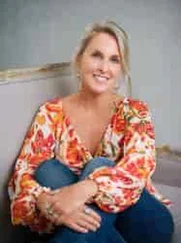Marcus’s life got incrementally better. During the summer his father had cleared the apartment of most of Constance’s things, which helped. Marcus had school which he took seriously; he studied hard. He, too, went to the gym three afternoons a week, and he got a job working two evenings plus Saturdays at a pizza shop in the student union at Queens College. It was a job that could easily have gone to a work-study student, but Marcus’s old boss at the grounds department put in a good word for him, even though he knew about Marcus’s mother. Marcus didn’t actually make pizza-no tossing or spinning of dough, no painting of sauce or collage of toppings-but he did become proficient with the pizza peel, the pizza cutter, and the cash register. He made $6.75 an hour and by mid-October had saved almost two hundred dollars toward his debt to Dome Books.
On Sundays, Marcus took the seven line into Manhattan to watch the Giants game at Winnie’s apartment. Those afternoons on the leather sofa were a quiet fantasy. They snuggled under a fleece blanket, and although there was no opportunity for sex- Beth was always around-they reveled in the warmth of each other’s body, just as they had on those nights in Horizon when they’d done nothing but sleep. Beth served them Cokes from a silver tray and made delicious pub food-potato skins, chicken fingers, mushrooms stuffed with sausage and Parmesan cheese. Sundays that autumn made Marcus glad to be alive.
Thanks to Beth, he’d met four times with Kara Schau, who actually traveled to Benjamin N. Cardozo High School to speak with him during his study hall. Mostly, he talked and she listened, but she left him with a few helpful sentences: You can be related to someone who’s done a bad thing and not be a bad person. You can love someone who’s done a bad thing and not be a bad person. You can even be someone who’s done a bad thing and not be a bad person. It helped Marcus to think this way, and he cut a deal with his father- sometime before the holidays he would go up to Bedford Hills to see Constance. He refused to partake in the weekly phone calls with Bo and LaTisha. When he was ready to talk to Mama, he told himself, he would do so face to face.
The first Saturday in November he rescheduled his work shift and he and Winnie went to the prison together, on the train. They were as solemn as they would have been at a funeral, holding hands and gazing out the window as the last of the fall leaves in Westchester County passed them by. Since Marcus had never been to the prison before, Bo told him what stop to get off at and how to catch the free bus to the prison grounds.
“It’s not a pretty place,” Bo said. “You know that, right?” Marcus knew it intellectually, but that was different from actually seeing the Bedford Hills Correctional Institute-the barbed wire, the armed guards, the stench of lost hope, the absolute concrete and metal desolation of the place. It was hell on earth. When Marcus and Winnie stepped down from the bus, they were herded into a huge waiting room filled with other visitors. Marcus gripped Winnie’s arm and led her to a space on a vinyl couch. There were glass-topped coffee tables with torn magazines and coloring books and broken crayons-because the waiting room was filled with little kids. It could have been a pediatrician’s office except for the edgy way the adults acted, sneaking glances, both shameful and interested, at one another. Everyone in the room loved someone who had done a bad thing.
During the wait, Marcus nearly fell asleep. He felt his body wanting to check out, shut down. Because it was too much to handle-the prospect of seeing his mother. Winnie was reading her English assignment, Macbeth, and Marcus wished he’d brought something to read, though he doubted anything would distract him. Finally, over the buzz of the room, Marcus heard his name. He helped Winnie up and walked toward the heavy black woman who was waiting for him. He tried to clear his mind as he would before a swim meet.
Constance, when he saw her, was behind glass, but Marcus marveled at how familiar she was. His mother. Mama. He’d expected her to look sad or tired; he’d expected her to look older. But, in fact, she looked much the way she had his entire life- with smooth brown skin, wide brown eyes, and the hair she always claimed she could do nothing with. At home, she wore silk scarves over her head, but here she made do with a navy blue bandana.
In those initial moments of studying her face-and yes, she looked as terrified and unmoored as he did-he waited for his anger to surface. This was what he was worried about-his anger. But instead he felt a profound sadness-his mother had ruined her life. Marcus’s life-as the summer had taught him and as his father had promised-would move on past the murders. But for Constance this prison was the last stop.
Constance sat and Marcus sat and they both picked up the phone.
Her voice was the same soft-and-scratchy tone, forever irritated by constantly explaining the basic tenets of the English language to kids who didn’t want to learn.
“Hello, child,” she said. “I’m glad you came.”
When she spoke, Marcus remembered one of the words Kara Schau had given him: “acceptance.” He didn’t have to forgive, he didn’t have to understand. All he had to do was show up. And here he was.
“Hello, Mama,” he said.
Winnie was standing a foot or so behind Marcus, a mere observer to the proceedings, but she teared up as she watched Marcus and Constance. She wondered what it would be like to see her father again for fifteen minutes. She would be tempted to give him news-about falling in love with Marcus, or about Beth being married before, or about Garrett becoming a father himself-but then she realized that she would do what Marcus was now doing: telling his mother he loved her.
Winnie couldn’t hear Constance’s voice, but she read her lips: I know, child, I know. Just the way Arch knew, wherever he was, that Winnie loved him and would keep him alive every way that she could.
It might have been the sound of Winnie crying that brought Marcus back to himself. He pulled Winnie forward, closer to the glass.
“Mama,” he said. “This is Winnie Newton, Arch’s daughter.”
Winnie had imagined this introduction twenty times the night before as she tried to fall asleep. She imagined Constance falling to her knees in gratitude, waxing on and on about what a great man Arch was. But now, in the actual moment, when Marcus handed Winnie the phone so that Constance could speak to her, what Constance said was, “I would have known you anywhere. You look just like your father.”
And this, of course, endeared Constance Tyler to Winnie forever.

By holiday time, Piper was six months pregnant. As Garrett moved through the days of his life-classes, the end of soccer, the beginning of intramural floor hockey, weekends with friends at the movies, even the occasional date (which he kept secret from his mother and sister)-it was easy enough to forget that the first girl Garrett had ever loved and might still love a little was suffering physically and emotionally as Garrett’s child grew inside her on an island thirty miles out to sea. At times-when Garrett took Brooke Casserhill out to dinner at a Peruvian chicken place, for example, where they were able to smuggle in a bottle of wine lifted from Brooke’s father’s wine cave -Piper seemed far away and less than real. She seemed like folklore. But at other times, mostly in the dark hours when Garrett should have been sleeping, Piper and her plight took on a gravity that nailed Garrett to his bed.
He tried to figure out what she expected from him. She accused him of being a kid. Well, yeah-he was seventeen years old, a senior in high school, just like she was. Had she wanted him to marry her?Raise the child?If that was the adult thing, and maybe it was, then Garrett conceded: it was out of his reach. He couldn’t do it.
Читать дальше













